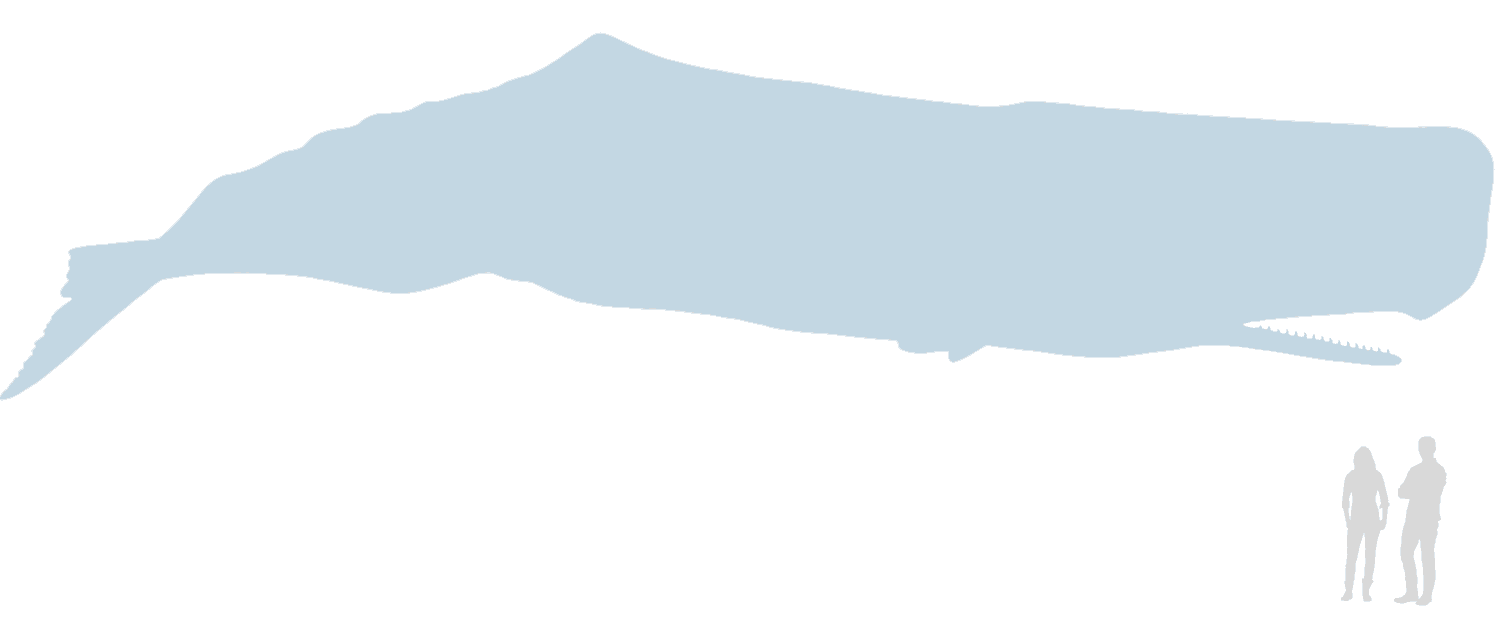
Sperm Whale
Physeter macrocephalus
Scientific Classification
| Kingdom | Animalia |
|---|---|
| Phylum | Chordata |
| Class | Mammalia |
| Order | Cetartiodactyla |
| Suborder | Mysticeti |
| Family | Physeteridae |
| Genus | Physeter |
| Species | macrocephalus |

Sperm whales are about 52 to 68 ft long (16 to 21 m) and can weigh up to 45 tons (40,800 kg)!
They can live up to 60 years.
Sperm whales feed at depth – their diet consists mostly of squid, but they also consume fish.
Sperm whales have one of the widest global distributions of any marine mammal species. They are found in all deep oceans, from the equator to the edge of the pack ice in the Arctic and Antarctic.
Threats to Sperm Whales
Habitat destruction & degradation, overfishing, entanglement, anthropogenic (human-created) noise, collisions with boats
Current Population Trend Unknown
 |
Conservation Status The IUCN Red List tracks the conservation status of organisms around the world. Visit the Red List to learn more about the conservation status of sperm whales. |
OCS Research Insights
Sperm whales are occasional visitors of our study area and our research team usually observes them alone or in pairs.
Off Southern California, some individuals have skin lesions associated with sun damage.
In our study area, sperm whales seem to follow the escarpment’s bathymetry (they swim along the contours of the underwater slopes and cliffs found under the ocean’s surface).
Sperm Whale Facts
• They are the largest of the toothed whales.
• Sperm whales can dive over 3,300 feet (1000 meters)!
• They have the largest head and the largest brain of any animal on the planet!
• They’re named after the spermaceti, a waxy substance found in their heads.
SUPPORT CONSERVATION
Protect whales and dolphins now and for future generations
TAKE ACTION!
Here's how you can help
Learn Safe Observation
Learn how to safely observe whales, dolphins and other marine mammals - whether from a boat, surfboard or when kayaking or swimming.
Report Injuries or Harassment
Know who to contact if you encounter marine animals who are injured, in distress, or those being harassed by humans or boats.
Support Marine Research
OCS conducts one of the longest-running investigations on wild dolphins and whales existing worldwide. Learn more about research projects that help ensure the protection of these animals for generations to come.
Share Your Knowledge!
Ocean conservation starts with education. Share this page by copy/pasting its URL into your social media accounts to educate others about the magnificent marine mammals we share our planet with.
whale and dolphin species drawings © Massimo Demma / ICRAM / Muzzio
